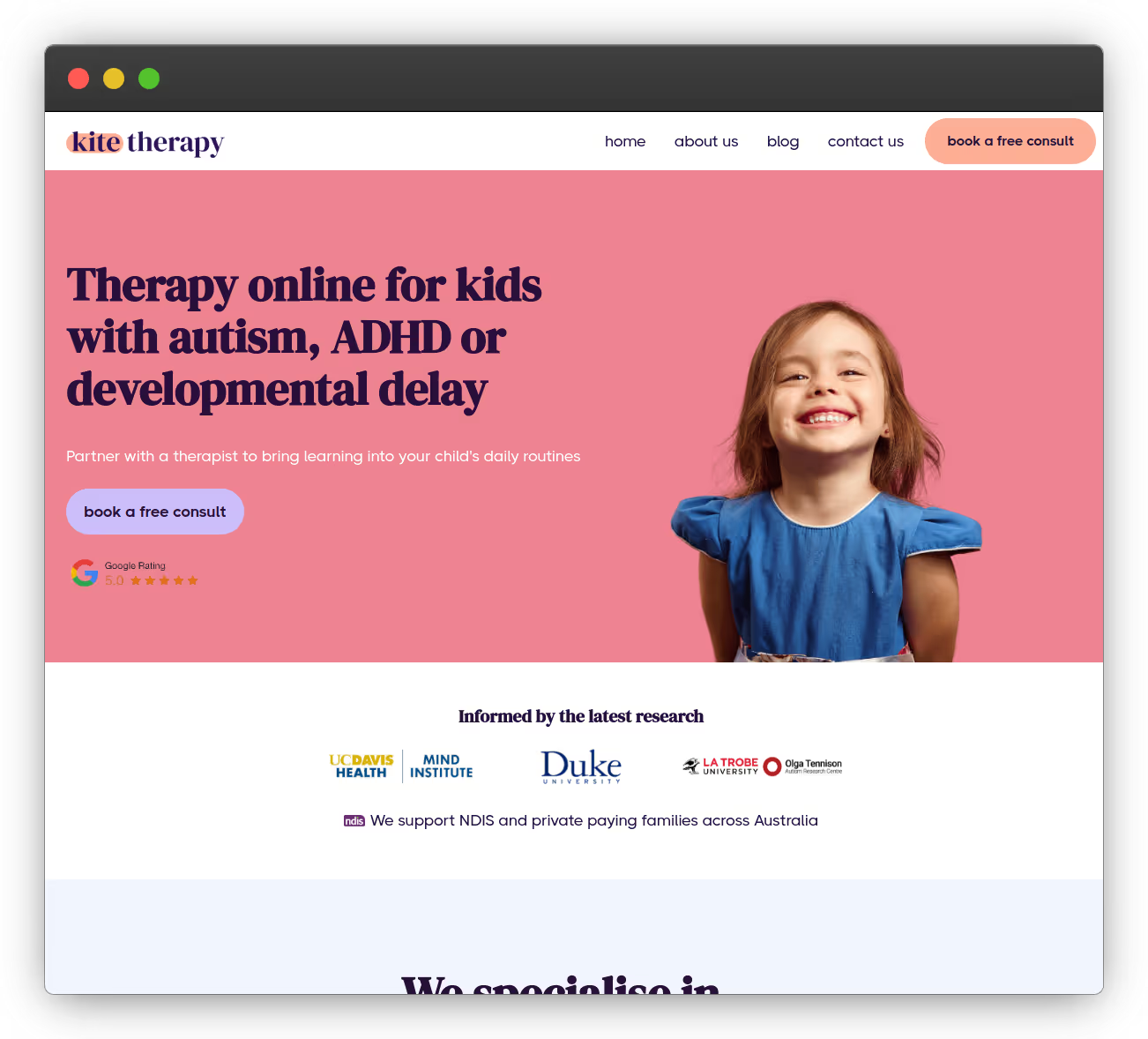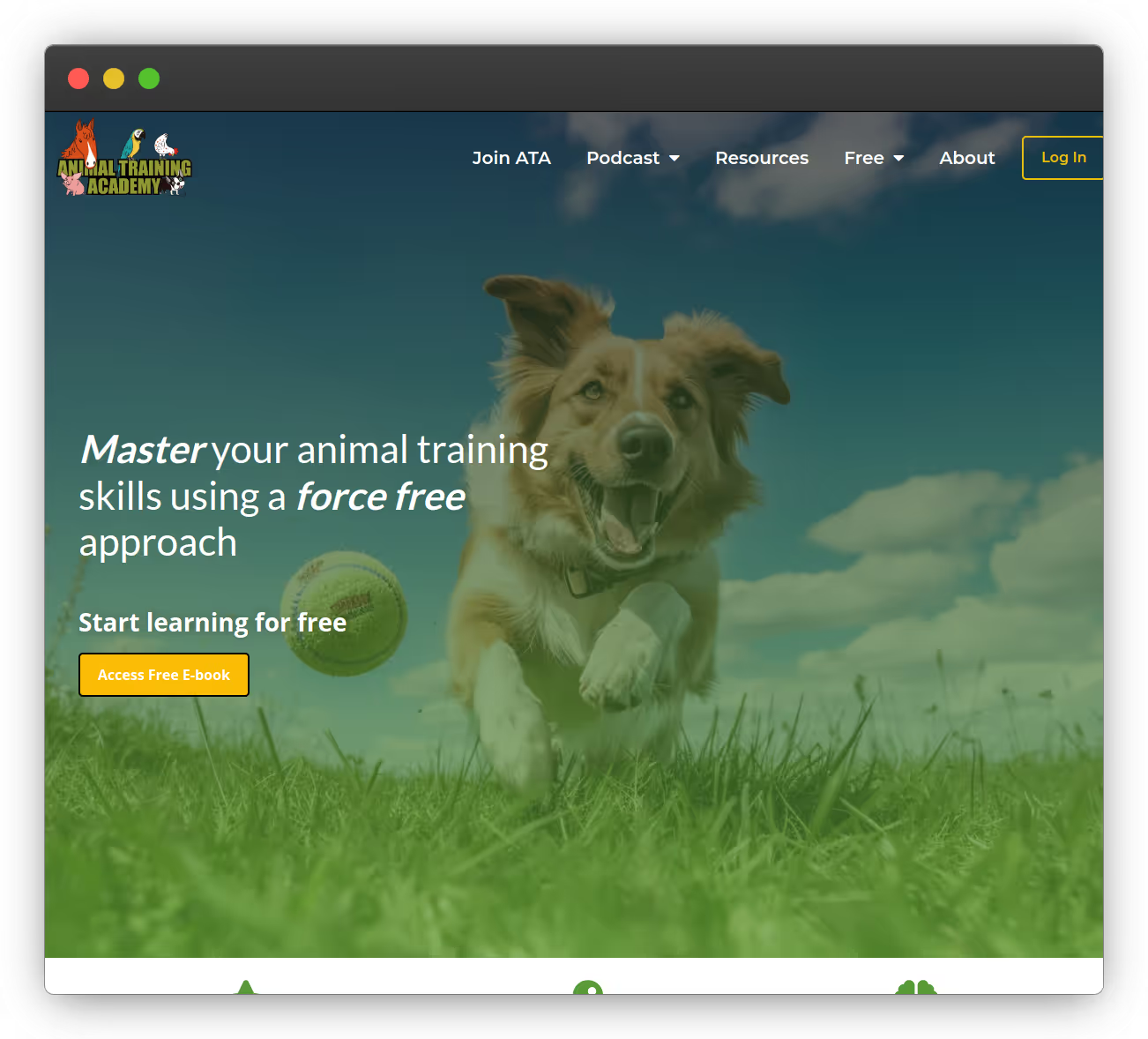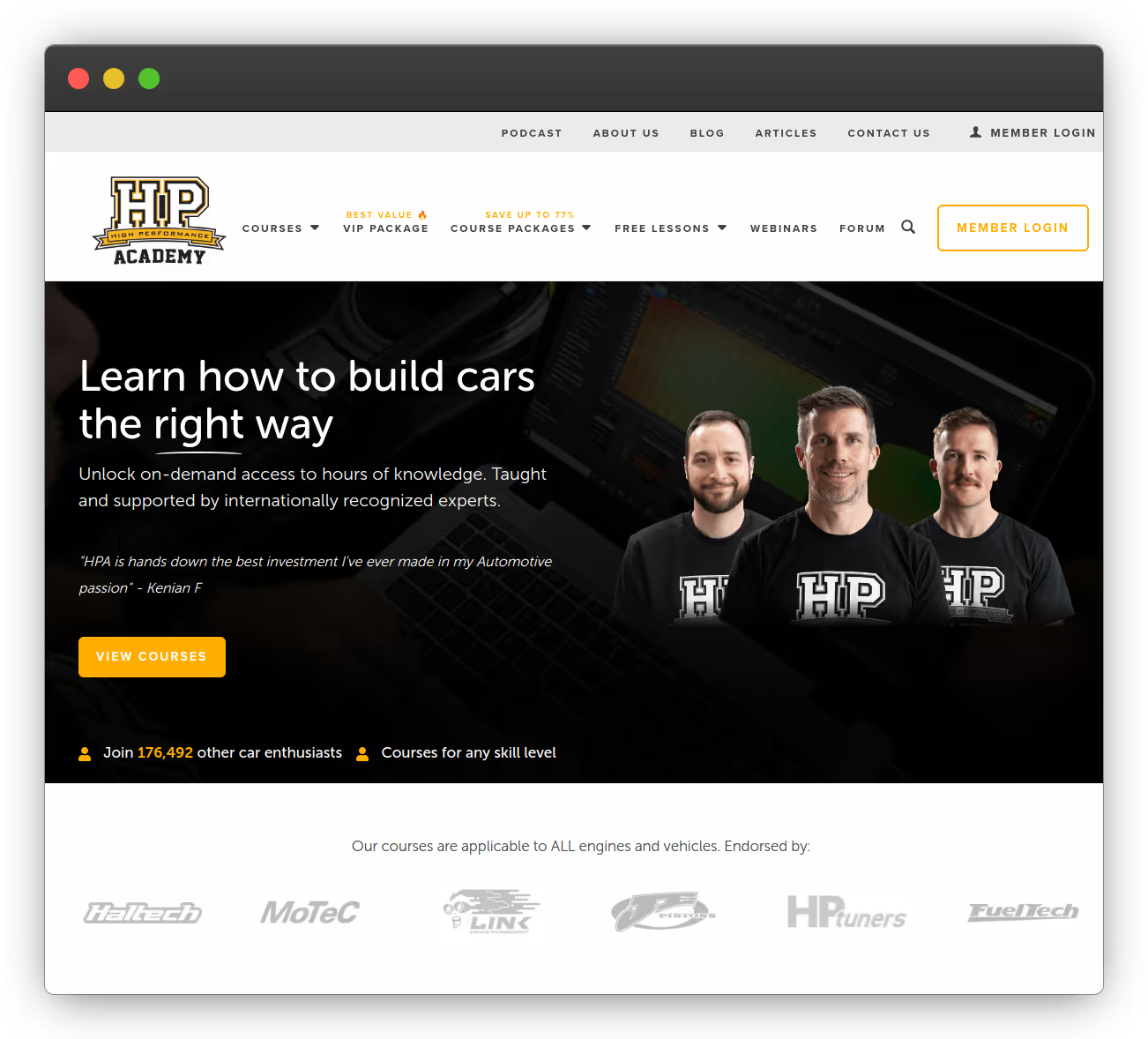Website Audit & Conversion Optimisation for Kite Therapy

About Kite Therapy: Kite Therapy is a VC-backed startup out of Australia. They are on a mission to make therapy significantly more affordable for kids with autism and developmental delays by coaching parents to implement it at home.
The Brief
As a fast-moving startup, Kite Therapy approached us after making significant inroads into the Australian childhood therapy market. Their unique parent-led approach was popular, especially with government funding, and they received glowing reviews from the parents and children who participated in their program. However, they had a lot of resources tied up in their main funnel—booking a free consultation. It was costing them too much to acquire leads through paid advertising, and many of the leads they were generating weren't the right fit to engage with their program.
While the website was friendly, and they had great reviews, there was a lack of clarity about what they did and how they achieved it.
We undertook a full heuristic analysis of the website, analyzing elements like home page orientation and conversion page trust metrics to understand where users were getting lost. We conducted an analytics assessment, and analysed heatmaps and user surveys to uncover the main reasons people weren't converting.
<br>
The Hypothesis
“By opting for clarity over persuasion and backing it up with clear reasons why parents should choose Kite Therapy, lead submissions should increase.”
One of the key areas we worked on with Kite Therapy was refining their home page hero messaging. The previous messaging, while sounding smart, left visitors wondering, "What does that actually mean?" In this case, clarity outperformed persuasion.
One of the common objections during sales calls was that the therapy was conducted online. A segment of the market only wanted in-person therapy and was unlikely to be convinced otherwise. However, nowhere on the Kite Therapy website was this clearly specified. With the new UVP, lead quality improved immediately by filtering out those uninterested in online therapy.
Another problem we identified was that people were unsure how Kite Therapy differed from traditional therapy providers. They had a fantastic model, but any deviation from the norm tends to make people cautious. We addressed this concern directly by highlighting the differences front and center, visually explaining how those differences were actually benefits.
The third main insight from our research was that prospective clients were very interested in knowing who the individual therapists were. Data showed that many visitors were jumping between the free consultation page and the About page. We pulled this information onto the main landing pages, celebrating their therapists, all of whom had a wealth of experience.
<br>
The Results:
In true startup fashion, Kite Therapy took the audit results and quickly redesigned major aspects of their website in days.
In the following weeks, Kite Therapy not only saw an increase in conversion rates, making their cost to acquire a lead through paid ads more sustainable, but the leads they were generating were also more qualified. A win-win all around.
The next step? Confirm these wins and iterate further to achieve even better results.




















